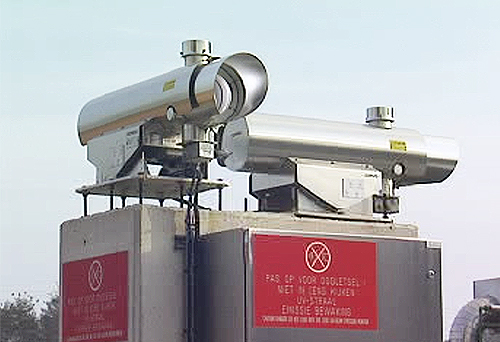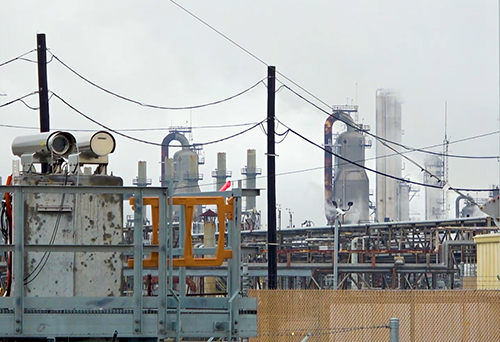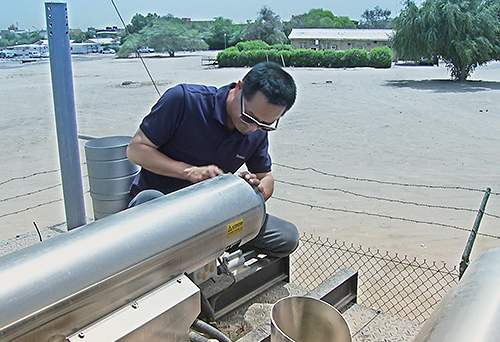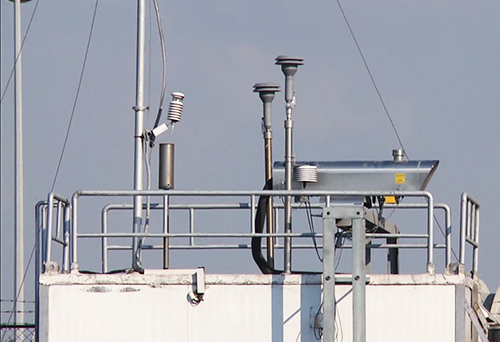The accessories that make the monitoring systems complete
Here are examples of some of the many accessories available for our air quality monitoring systems. We have the equipment to create the monitoring system that is best for the specific task.
CALIBRATION EQUIPMENT
Calibration is needed to show that the measurement results correspond to reality. If they do not, the instrument readings can be adjusted. There are a number of different products for calibrating OPSIS monitoring systems. Most often, a calibration bench model CB100 is used. It is used together with a light source (CA150/RE060) and a receiver (RE060) at each end of the bench so that a monitoring path is formed along the bench.
Calibration is done by inserting one or more cells with transparent windows into the light path. The calibration gas of known concentration is flowed through the cells. Varying cell lengths or combinations of different cells allow different calibration points to be selected with a single gas source. Zero calibration is done by monitoring on the calibration bench without cells.
Gas cylinders with a traceable and certified gas concentrations are usually used as the gas source. However, some gases cannot be supplied in cylinders, such as ozone. In that case, an OPSIS OC500 ozone calibrator is used to generate a known ozone content.
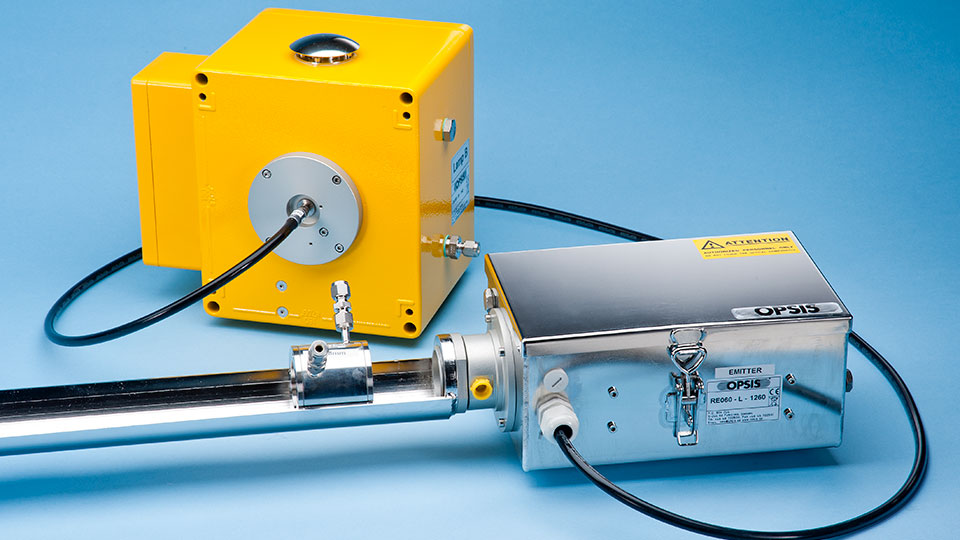
MULTIPLEXERs
An optical multiplexer is used when an OPSIS system has more than one monitoring path. The multiplexer is connected between the monitoring paths and the gas analyser. Measurements are then made in sequence along each monitoring path.
There are several models of multiplexers with the capacity to connect different numbers of paths. For DOAS systems the MX004 or MX009 is used. The LD500 laser diode gas analyser uses other types of multiplexers. In all cases, the multiplexer means that a single gas analyser can cover a large area with monitoring paths in different directions. This provides a very cost-effective and area-effective system solution.
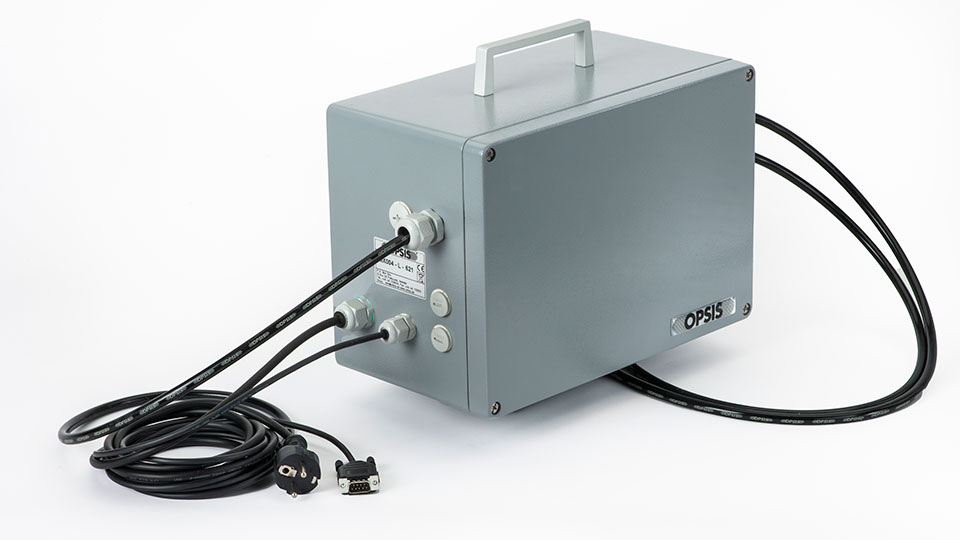
METEOROLOGICAL SENSORS
Monitoring systems from OPSIS are often supplied with sensors for monitoring various meteorological parameters such as:
- wind speed and direction in two or three dimensions (WX500 series)
- temperature (PT100)
- solar radiation (GR180)
- precipitation (RG500)
- atmospheric pressure (BM100)
- humidity (HX110).
The sensors can be easily connected to our monitoring systems, either directly or via our data acquisition products (IOMan, DL256, WT256).
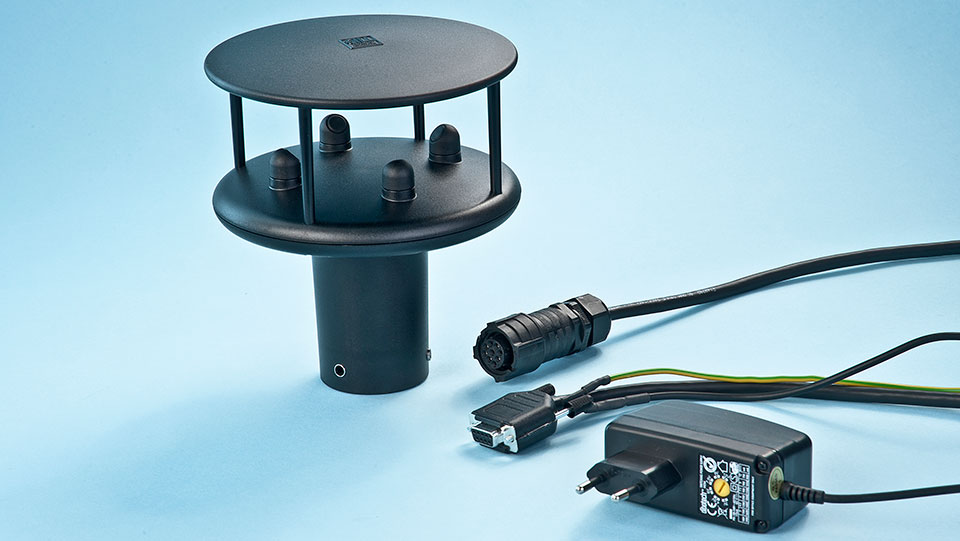
INSTRUMENT HOUSES
Our instrument housings provide the optimal operating environment for the monitoring equipment. They are designed to operate trouble-free for many years in the most varied climates and environments, in all types of air quality monitoring. At the same time, they can provide a comfortable and safe working environment for the staff who maintain and calibrate the instruments. There are several different models to choose from. The choice depends on the application and the extent of the monitoring equipment to be housed.
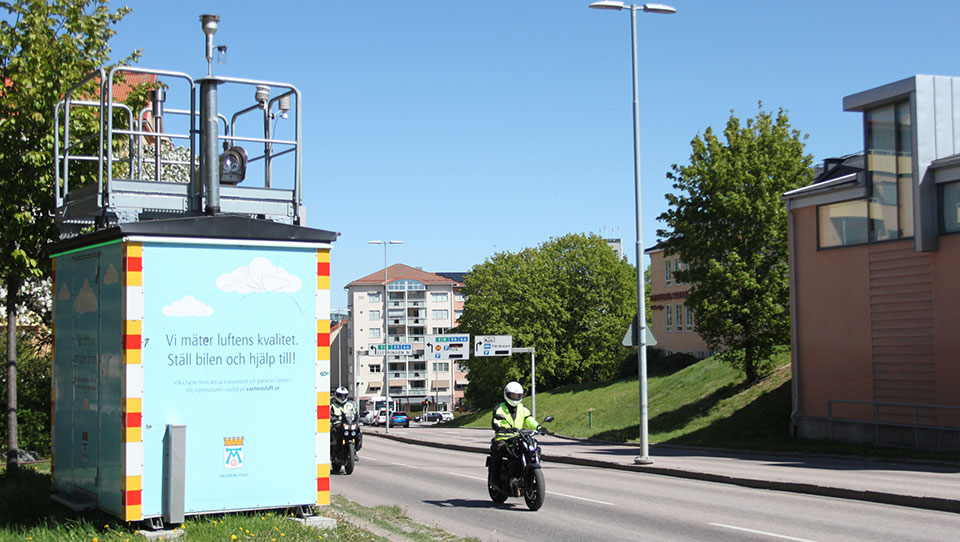
BLOGS ABOUT OUR PRODUCTS
On our blog page you can read more about our products for air quality monitoring, for example

